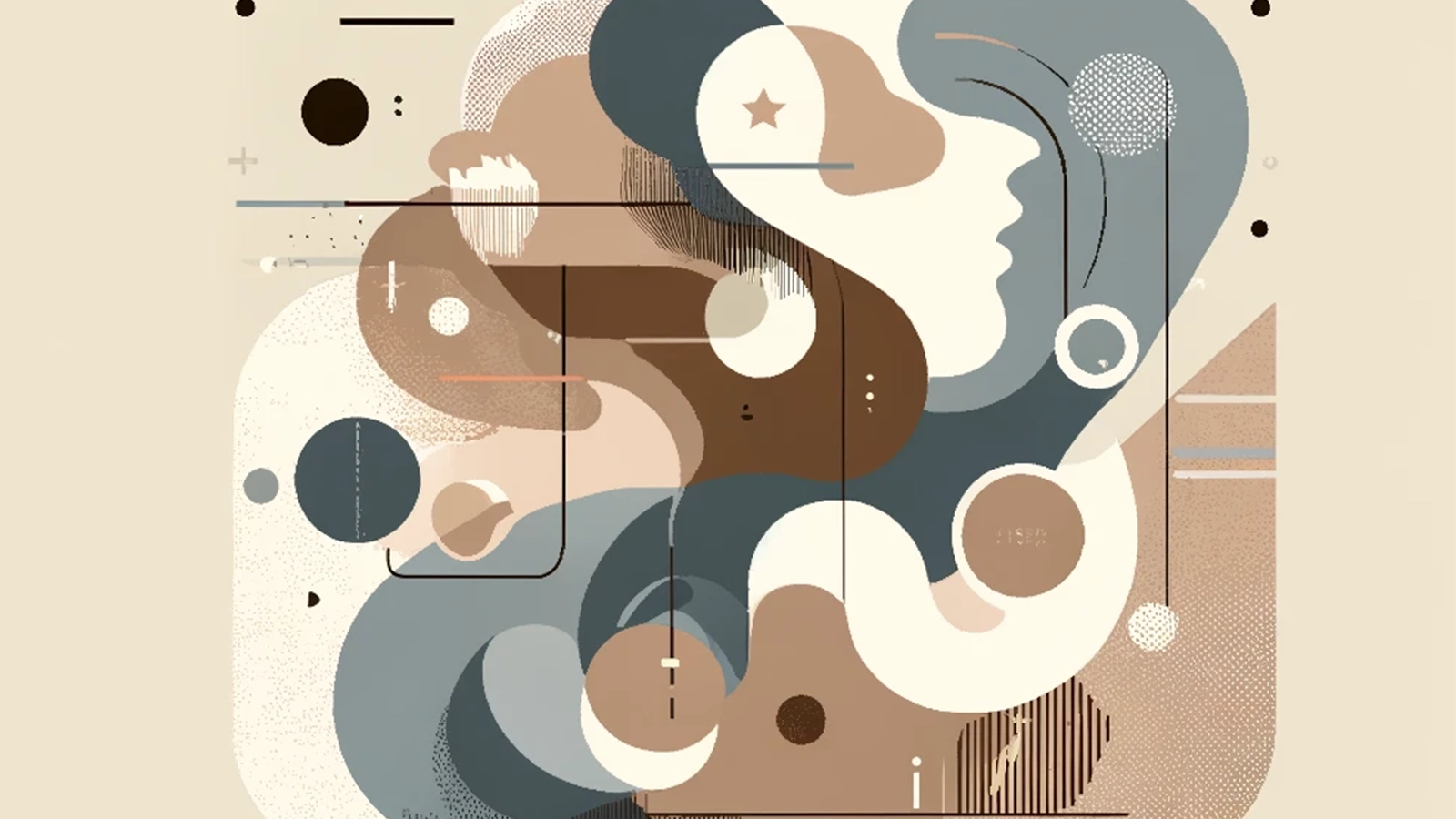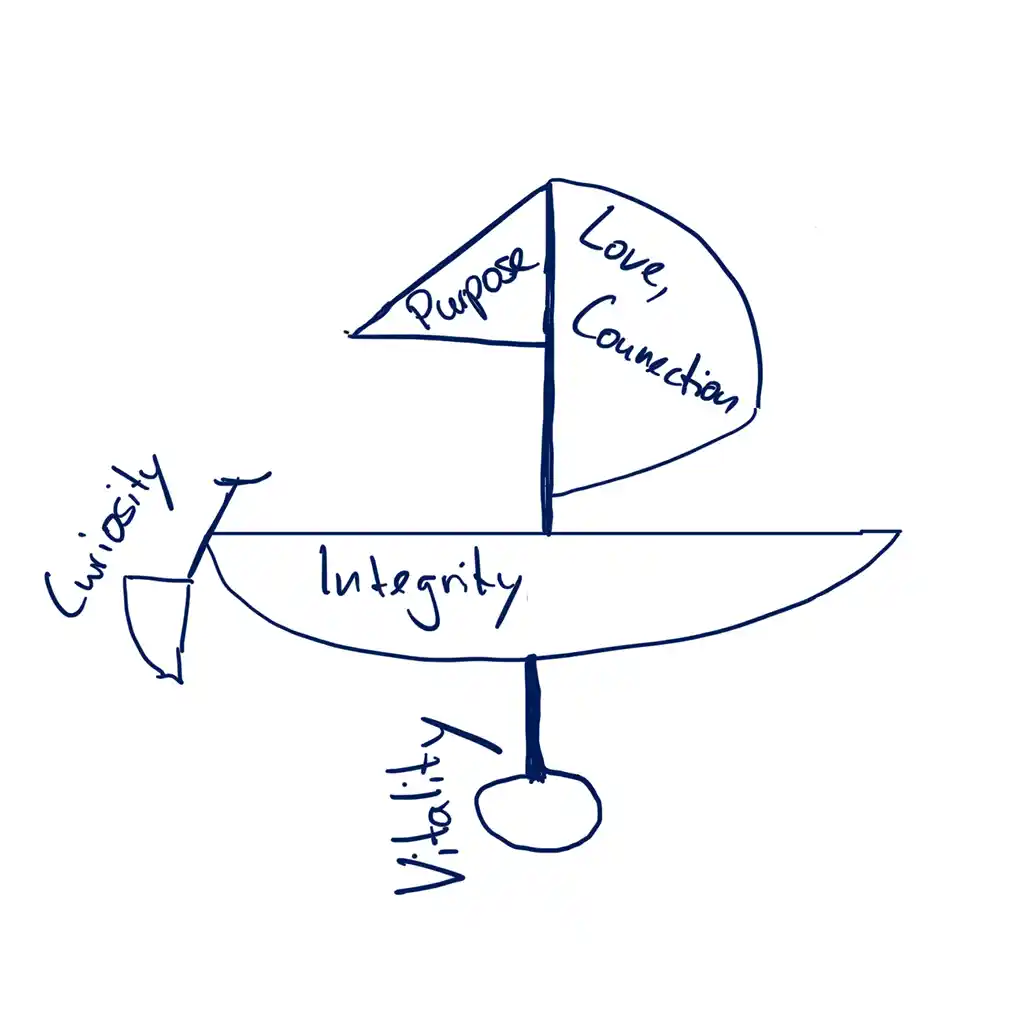Character - Controls your Fate.

"Human freedom involves our capacity to pause between stimulus and response and, in that pause, to choose the one response toward which we wish to throw our weight" - Dr. Gabor Maté.
What makes us humans human when compared to an artificial intelligence... it's the (emotional) baggage we carry with us. It's baggage that makes every day, every decision, every interpretation unique.
Yet, we have the power over how we show up. What we belief is right, what we value, will play an important role. "A man's character is his faith", said Heraclitus. And Character shows, especially in difficult times.
And having values that consciously define your character are the best bet to introduce a layer of intention. A means to control your fate.
Your character is your fate.
Your Character is your Fate: Values, Boundaries, Passions, and Dislikes. Your character is evolving and influencing what to operate on.
Your Trademark.
Imagine it is your funeral. People whose hearts you touched will be standing around your grave. Close your eyes and ask yourself:
What will they say about you?
How fast you were promoted in your career? What a beautiful car you drove? Or how famous you were? I've been to quite a few funerals. It is almost exclusively about the person's character - how kind, funny, curious, loving they were.
Or in other words, its the unique ways you shaped your life, and how it affected those around you.
To me, this alone says a lot about the importance of character.
Character is what people remember.
Call it your trademark or the content of the eulogy for your funeral. People remember who you where, will decribe your character.
Excurse: A framework for values.
A teacher of mine gifted me the metaphor of a boat to illustrate the importance of character in life:

The keel of the boat, essential for stability and control, represents vitality. Without vitality, just as without a keel, navigation becomes challenging.
The boat's hull symbolizes integrity, encompassing values such as authenticity, sovereignty, and freedom. Any compromise in these values, akin to holes in the hull, can lead to self-disconnection, slowing progress and, in severe cases, causing complete derailment.
The rudder, which guides the boat's course, signifies values like curiosity and exploration that steer our life's direction.
Propelling the boat forward, the headsail represents purpose, our 'why' that pushes us ahead. The mainsail, crucial for the boat's movement, signifies love and connection, essential elements that fuel our journey long term.
This analogy illustrates that our character, like the boat, requires all its components to function optimally for a fulfilling journey. Therefore, humans should consider these aspects when contemplating their character to ensure their values optimally support their life.
Integrity and Character
So, character is the sum of the qualities that make up a person, including their values, beliefs, and moral compass. And I argue no character is viable without at least some integrity.
Why?
Once we know who we want to be, integrity is what defends this choice from our default (ego-driven) response to stimuli from the external world. If we abandon our values or forget our moral compass, we abandon our integrity, and hence stop living our own, sovereign and authentic lives.
👉 There's a great book on why integrity maters so much called "The Way of Integrity*" by Martha Beck:
The word integrity has taken on a slightly prim, judgmental nuance in modern English, but the word comes from the Latin integer, which simply means “intact.” To be in integrity is to be one thing, whole and undivided. When a plane is in integrity, all its millions of parts work together smoothly and cooperatively. If it loses integrity, it may stall, falter, or crash. There’s no judgment here. Just physics. As above in aerodynamics, so below in our everyday lives. When you experience unity of intention, fascination, and purpose, you live like a bloodhound on a scent, joyfully doing what feels truest in each moment.
Boundaries: if it costs you your peace and integrity, it's too expensive.
Without boundaries, we run the risk of drifting aimlessly, becoming susceptible to the pulls of other people's demands and expectations. This can lead to self-betrayal, diminishing our self-worth, fostering resentment, sabotaging our peace, and even pushing us towards burnout1. Boundaries are, therefore, essential to maintaining our values and principles, and they contribute significantly to the difference we make and the footprints we leave behind.
In essence, boundaries are not just about saying 'no' to others but more importantly, they're about saying 'yes' to ourselves, to our authenticity, and to our values.
It cannot cost you your integrity.
If it costs you your peace and integrity, it's too expensive. Say "no" more often so you can say "yes" with passion.
Character is evolving with our experiences.
Like a sail set to changing weather, our Character will change given the circumstances. We adjust our values, like a sailor changes course, adapting to life's varying conditions.
Societal norms, cultural influences, and personal experiences are the winds and tides that shape us. The importance of our values can shift as easily as a boat facing a new wind direction.
Taking risks may involve conscious redefinition or temporary suspension of some values, enhancing our resilience. Character isn't rigid; it's flexible, responsive, steering us effectively through life's journey. Yet, being thoughtful of those values is key to setting boundaries and leaving footprints to be proud of.
What principles can be used to live authentically?
Personally, I love Don Miguel Ruiz' "4 Agreements*" - those 4 simple rules are tough to follow but following them with the best intentions help me:
- I’m impeccable with my words, meaning without sin, towards myself and others. I speak with integrity, I say what I mean. I use my words towards truth and love.
My word is a force. It is the power I have to express, communicate, to think, and create
- People live in their own reality, I do not take externalities personally. I choose to be my own writer, director, and hero. I cherish my reality, and direct with kindness.
What others say and do is a projection of their own reality. Immunity to opinions and actions of others is to suffer less.
- Observation mode: activated. I do not assume. I find the courage to ask questions and to express what I really want, radically honest, fair and without shame.
We often are too afraid to ask. Talk to others as clearly as you can to avoid misunderstandings, sadness, and drama.
- Being my best, taking full responsibility for my actions. Without trying too hard, I accept my best self. I want to live, be happy and love.
Your best will change day to day. Simply do your best, and you will avoid self judgment, self-abuse, and regret.
Now, these are big words that sound beautiful. It is the process of introducing personal meaning to those values that counts. Your response to triggers will be ego-driven and go unchecked by previous values instilled by yourself and others in your past. Unless you introduce something that bridges the gap between knowing what's right and actually doing it.
Conscious confidence requires more energy and life force. Abandoning your values for short term hedonism will always be tempting. But: Once implemented in your daily life, your values will become: unconscious competence.
Now that I know my character's importance, it's time to tie all those parts of life together - in a personally meaningful way. There's one area of life that has the potential to serve in that way: a personal definition of Spirituality.
- Disclaimer: Links with an * asterisk are affiliate links. I earn a small commission when you buy a product I recommend. This does not mean you pay more - but it helps me maintain this website.